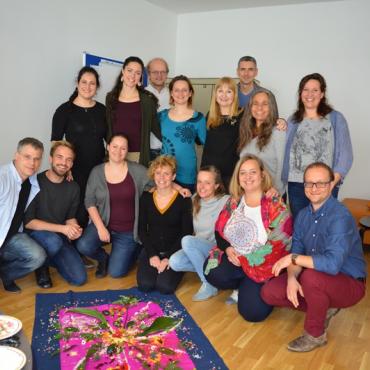CAPS
Play is in the core of a child’s life. Not only humans play, play-like activities have already been found in insects and all mammals play as juveniles.
Play researchers believe that play is the basic form of learning for life and as playwork theory states all “social, physical, intellectual, creative and emotional” (SPICE) aspects are developed through play, especially through freely chosen, intrinsically motivated and self-controlled play.
However today play is at risk. Children of today – especially in urban areas- have much less access to play, have less play time and less freedom as control is exerted by risk averse parents/ adults.
The leverage point of the system of factors influencing play in society, is clearly the schools. They are where all the children can be found, and spend most of their time.
Therefore, schools shall be formulated to provide more play spaces and opportunities: to become more play-friendly. That is why, based on UK experience, we would like to develop a Play-friendly Quality Criteria / Label for Central Europe.
Our project will be based on the experience of the OPAL (Outdoor play and learning)-Programme, which is a mentor supported school improvement programme. It addresses all of the areas schools must plan for if they want to strategically and sustainably improve the quality of play.
To have the criteria as fitting and adaptable as possible, we are going to run research in each country and set up National Adaptation Plans. Also, to prepare schools to apply the criteria we are developing a staff training course and materials, which will be adapted and translated to local languages.
As a result of our communication activities, we would also like to set up a European network of playworkers –professionals, whose role is ''to support all children and young people in the creation of a space in which they can play” (Playwork Principles).
Project Partners
· University of Gloucestershire (United Kingdom) http://www.glos.ac.uk (coordinator)
· Palacký University Olomouc, Faculty of Physical Culture (Czech) http://www.upol.cz/
· Roger Foundation (Hungary) http://www.rogersalapitvany.hu/
· Gesellschaft für Sozialforschung und Bildung (Austria) http://www.gesob.at
· TANDEM n.o. (Slovakia) – http.//www.tandemno.sk
· Gedania 1922 Association (Poland) http://www.gedania1922.pl
Project duration
September 2017 – August 2020

This project has been funded with support from the European Commission. This website reflects the views only of the author, and the Commission cannot be held responsible for any use which may be made of the information contained therein.
